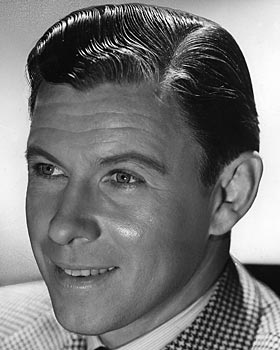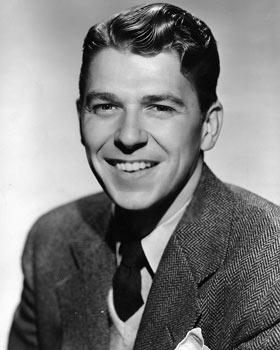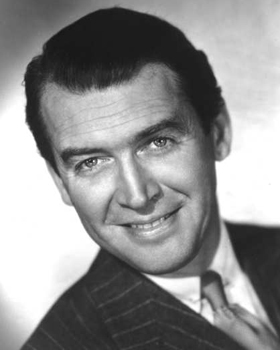George Murphy
George Murphy, was an actor-dancer who served one term as a U. S. senator from California. He preceded a fellow Republican, Ronald Reagan, into public office by two years, in 1965. Like Reagan, he was a conservative who had parlayed public relations, speaking, fundraising and other skills he had gathered in Hollywood into a political career.
But unlike Reagan, Murphy's public service did not bring him new popularity, and at the end of his term he was defeated by Democrat John V. Tunney after a controversy over his acceptance of thousands of dollars in annual retainers from Technicolor Inc., a former Hollywood employer, while serving in the Senate.
Often a brash promoter of his own fortunes and reputation, Murphy freely took credit for Reagan's entry into politics, saying, "Sure, that big nationwide [1964] TV speech for [Republican presidential candidate Barry] Goldwater shoved him across the line, and it was great. But I'd been talking to Ronnie about political service for years. You know, he succeeded me as president of the Screen Actors Guild. And I played his father in a movie."
Murphy made his debut in Hollywood in the 1934 film "Kid Millions." He appeared in more than 45 movies, including "This Is the Army," "Little Miss Broadway," "For Me and My Gal," "Battleground" and "Powers Girl," opposite such actresses as Shirley Temple, Judy Garland and Elizabeth Taylor.
As a member of the Board of Directors of the Screen Actors Guild from 1937 to 1953 and its president in 1944-46, Murphy prided himself on his efforts to keep Communists out of the movie industry. He retired as an actor in 1952, becoming a public relations man for the industry and working in that capacity for such firms as Metro-Goldwyn-Mayer, Desilu Productions and Technicolor.
Like Reagan, Murphy started out in Hollywood as a Democrat. But in 1939, decrying what he said he felt "was a real move toward socialism and centralized control of our government," he changed his registration to Republican. The next year, he formed the Hollywood Republican Committee to "combat the general belief that all Hollywood actors and writers were left wing."
Related stars
|
|
Points of interest
Academy Awards
| Year | Category | Work | |
|---|---|---|---|
| 1950 | Honorary Award | Win |




Share a thought about George Murphy